2008 GMC Yukon Hybrid 4×4 Review

Let's get something out of the way right now: the Yukon Hybrid is over-priced. Our tester stickered at $56k. At that price point, GM's gas – electric SUV competes against BMW's enlarged X5, Audi's Q7 carcoon and Lexus' golf club friendly RX 400h (to name a few). Hybrid or no, the GMC Yukon's not exactly what you'd call an upmarket machine. If The General had taken the hit and offered the Yukon Hybrid for the same price or less than its gasoline equivalent, it would be a far more compelling proposition. But they didn't. So let's press on.
Aesthetically, the Yukon Hybrid is about as bashful as a drunken sorority girl at Panama City Beach Spring Break. The big rig's plastered with no fewer than nine proclamations that it possess a gas-electric drivetrain, including three-foot-long "Hybrid" stickers along its mighty flanks. Custom side skirts, a rear spoiler and good-looking low-weight 18-inch wheels add more not-so-subtle style (and mpgs) to the equation.
Other than that, it's a Yukon: big, bland and boxy. OK, the SUV's creases were sharpened pre-Hurricane Katrina, but the Yukon's looks still aren't going to blow anyone away.
To drop the Yukon Hybrid's aerodynamic Cd from .39 to .34, GM re-softened those sharpened creases with a slightly reshaped hood and rear hatch, and lost the roof rack. Although the new hood and hatch are fashioned from aluminum, the Yukon Hybrid's batteries and electric motor make it heavier than the standard model. The Yukon Hybrid's heft rises from either 5270 to 5541 lbs., or from 5438 to 5617 lbs., depending on whether you believe GM PR or the GMC website.
GM's new truck interiors may be far better than anything they've ever offered, boasting attractive chrome accents and a real woven headliner. But at $51k (base), the Yukon Hybrid's interior feels cheaper than a Las Vegas motel on a Tuesday afternoon. Fake wood and aluminum abound. Vinyl that tries (and fails) to look like leather stretches across the ample dashboard. The seats are flat and unsupportive, and the optional third row seat is unusable for anyone but Hobbits.
The Hybrid comes amply-equipped with navigation, rear parking camera, auto climate control and power everything. In complete contrast to the exterior, only a small Hybrid logo, an "Eco" gauge and a Prius-like touch screen drivetrain display remind the driver that they're piloting the world's largest private passenger hybrid.
To maintain the Yukon's cavernous interior, the engineers utilized the undercarriage space for the NiMH batteries. Part of that space was realized (and the beast's weight gain minimized) by replacing the full-size spare tire with a can of sealant– not exactly what you'd expect in a 4×4. Not that you'd ever take those low-rolling-resistance donuts off-road. On the positive side, the Yukon Hybrid 4X4's towing capacity is a respectable 6000 lbs. (down from 8000 lbs.).
Which may account for GM's decision to equip the Yukon Hybrid with a 332hp, 6.0-liter Vortec engine. In any case, the monster motor becomes a hybrid with the addition of a 300V battery, two 60KW motors in the transmission and some creative software.
I've never driven a full hybrid this seamless in operation. You never notice when the drivetrain changes modes, from electric to gas and back. The electric boost comes on smoothly; the power delivery remains silken as the engine spools-up. When revved hard, the 6.0-liter offered a muted yet spine-tingling burble. Despite the weight, the excellent drivetrain pushes the Yukon from zero to sixty miles per hour in about eight seconds. The system manages a decent-for-such-a-behemoth 20mpg both in the city AND on the highway.
The Yukon Hybrid's suspension is as ridiculous as the drivetrain is sublime. The steering feels vague at low speeds and darty on the highway. Engaging four-wheel-drive mode makes the rig feel like a forklift, with all four wheels pushing in different directions. The Yukon skitters and wallows during cornering and shudders like a Sebring convertible over rough patches. The massive weight smooths out the ride to decent levels, but the European and Japanese competition put the Yukon to shame in comfort, control and cornering ability.
As for that highly-touted 25 percent fuel economy improvement, yes, I achieved the advertised mpg in mixed driving. But I wonder how much of that gain's down to the non-drivetrain mods. Equally perplexing: why hasn't GM incorporated them into normal Yukotahburbelades? Is the American automaker shortchanging their gas-powered SUVs to protect the hybrid versions' rep? Clearly, the Yukon Hybrid raises more questions than it answers. Meanwhile, one thing is for sure: at that price, in this market, the Yukon Hybrid will not be flying off the lots.

More by Mike Solowiow
Latest Car Reviews
Read moreLatest Product Reviews
Read moreRecent Comments
- MrIcky 2014 Challenger- 97k miles, on 4th set of regular tires and 2nd set of winter tires. 7qts of synthetic every 5k miles. Diff and manual transmission fluid every 30k. aFe dry filter cone wastefully changed yearly but it feels good. umm. cabin filters every so often? Still has original battery. At 100k, it's tune up time, coolant, and I'll have them change the belts and radiator hoses. I have no idea what that totals up to. Doesn't feel excessive.2022 Jeep Gladiator - 15k miles. No maintenance costs yet, going in for my 3rd oil change in next week or so. All my other costs have been optional, so not really maintenance
- Jalop1991 I always thought the Vinfast name was strange; it should be a used car search site or something.
- Theflyersfan Here's the link to the VinFast release: https://vingroup.net/en/news/detail/3080/vinfast-officially-signs-agreements-with-12-new-dealers-in-the-usI was looking to see where they are setting up in Kentucky...Bowling Green? Interesting... Surprised it wasn't Louisville or Northern Kentucky. When Tesla opened up the Louisville dealer around 2019 (I believe), sales here exploded and they popped up in a lot of neighborhoods. People had to go to Indy or Cincinnati/Blue Ash to get one. If they manage to salvage their reputation after that quality disaster-filled intro a few months back, they might have a chance. But are people going to be willing to spend over $45,000 for an unknown Vietnamese brand with a puny dealer/service network? And their press photo - oh look, more white generic looking CUVs. Good luck guys. Your launch is going to have to be Lexus in 1989/1990 perfect. Otherwise, let me Google "History of Yugo in the United States" as a reference point.
- Schen72 2022 Toyota Sienna, 25k miles[list][*]new 12V battery, covered by warranty[/*][*]new tires @ 24k miles[/*][*]oil change every 10k miles[/*][*]tire rotation every 5k miles[/*][/list]2022 Tesla Model Y, 16k miles[list][*]nothing, still on original tires[/*][/list]
- Kjhkjlhkjhkljh kljhjkhjklhkjh Elon hates bad press (hence TWITTER circus) So the press jumping up and down screaming ''musk fails cheap EV'' is likely ego-driving this response as per normal ..not to side with tesla or musk but canceling the 25k EV was a good move, selling a EV for barely above cost is a terrible idea in a market where it seems EV saturation is hitting peak



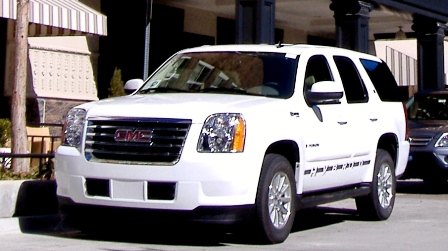




















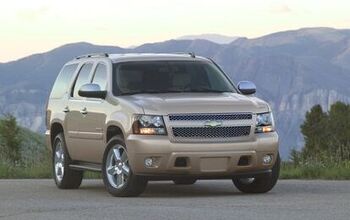
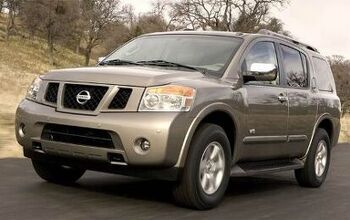
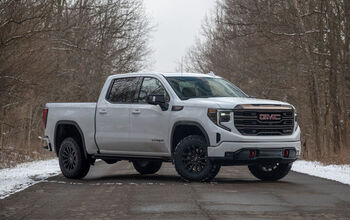
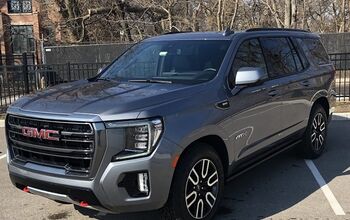
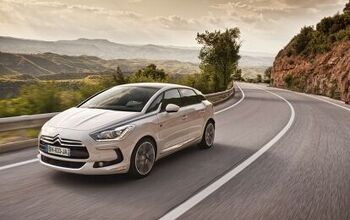







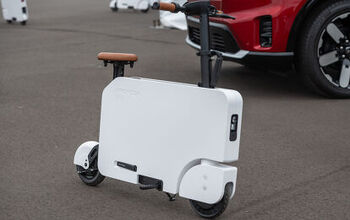


Comments
Join the conversation
This is what happens when engineering goes down the drain. Either costs are cut and the engineers are limited to what they can or can't do so they don't waste time trying and therefore poorly engineered vehicles are marketed and sales go down because for the same price as this piece of crap you can buy a finely engineered BMW X5, AUdi Q7, Toyota Sequoia, or a Lexus RX 400h. Then GM has the intelligence to hybrid such a heavy gas guzzling SUV. They engineered the Escalade to so you can be cool and think you are saving the planet to. What's next for GM, are they going to hybrid a Tank?
What is GM's next move, are they going to Hybrid a tank and sell it to the Army?